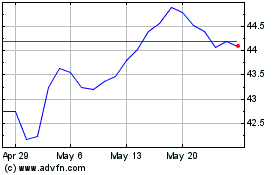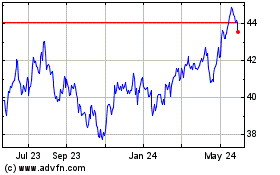There is no doubt that the U.S. market started 2013 with a bang
with heavy inflows across all kinds of risky assets. In fact, the
S&P recorded eight sessions of gains, the longest streak of
rally in the last eight years. Also the fact that investors are
pouring in more cash in stocks, mutual funds and ETFs indicates the
rise of investor confidence in the market. (3 Ways to Play the
S&P 500 Rally with ETFs).
However, keeping aside the growing economic momentum and rising
consumer demand, U.S. stocks appear to be expensive when compared
with their emerging market counterparts. Additionally, although the
fiscal cliff overhang has been shed off, still the concerns over
the sequester looms large over the economy.
In such a scenario investors have not completely been weaned
away from the attractions of the emerging markets. In reality
emerging market ETFs are known for their cheap valuation and better
economic growth prospects than the developed economies. (Three
Overlooked Emerging Market ETFs).
In recent months, the emerging markets have shown strong growth
momentum at a time when the developed economies like the U.S. and
Europe were handling their fiscal issues. Emerging market gained 5%
in December last year.
Growth in the emerging markets is expected to rise in 2013 as
well. Among these markets, China appears to be attracting investor
attention once again as it is back on the growth path after years
of underperformance.
Numbers now suggest that China seems to be outperforming both
the U.S. and overall emerging market as a whole. Stocks in the
country actually posted growth of 25% in the past six months (Try
Small Cap ETFs to Gain from Chinese Domestic Demand).
In addition, India appears to be back on track attributable to
various government reforms. The Indian economy is largely dependent
on foreign capital inflow. And with the allowance of foreign direct
investments in the retail industry, the market is surely poised to
benefit going forward.
Healthy corporate earnings and an increase in business spending
will also boost the performance of the Indian equities and the
economy. The growth will be further spurred by the reinstallation
and improvement in the infrastructure of the country (Can India
ETFs Continue Their Solid Run?).
Also, valuations for emerging market stocks appear to be cheaper
compared to U.S. stocks. After the recent rally, U.S. stocks appear
to be trading at a premium of 40% on the basis of price-to book
ratio.
So, considering the strong growth momentum in the emerging
economies and a more attractive valuation of stocks, it seems that
emerging market ETFs are poised for strong growth heading into
2013. In fact emerging market ETFs have experienced a heavy inflow
of assets from the start of the year.
In 2013 emerging markets ETFs have recorded an inflow of nearly
$6.8 billion. Of this, approximately $5 billion was poured into the
two largest emerging market ETFs, namely, iShares MSCI Emerging
Markets and Vanguard FTSE Emerging Markets (Emerging Market ETFs:
EEM vs. VWO). Both the ETFs have been briefly described below:
iShares MSCI Emerging Markets ETF
(EEM)
One of the popular ways to track the emerging market is through
EEM which follows the MSCI Emerging Market Index. The fund appears
to be rich in both volume and assets under management.
EEM manages an asset base of $51.9 billion and trades with
volume of more than 56 million. The fund’s asset base is spread
across a large basket of 843 securities and has a minimal company
specific risk as just 16.08% is invested in top ten holdings.
Among individual holdings, Samsung Electronics, Taiwan
semiconductor and China Mobile forms the top line of the fund. The
fund charges an expense ratio of 66 basis points annually.
In terms of individual countries, China enjoys the maximum
allocation with a share of 18.04% while South Korea, Brazil and
Taiwan also gets double digit allocation in the fund with a share
of 14.38%, 12.74% and 10.38% (China ETF Investing 101).
Vanguard FTSE Emerging Markets ETF
(VWO)
VWO is another popular ETF to track emerging market. The fund
manages an asset base of $61,625 million and trades at volume level
of more than 22 million shares a day.
The fund invests its asset base in 888 securities with just
14.05% invested in top ten holdings. Among individual holdings,
Samsung, China Mobile and America Movil occupies the top three
positions with respective share of 2.51%, 1.86% and 1.39%.
For sectors, financial gets the maximum allocation closely
followed by technology, basic materials and energy sectors.
Among various nations, China, South Korea and Brazil and Taiwan
enjoy double digit allocation in the fund with respective share of
17.9%, 14.46%, 12.02% and 10.88%. The fund charges a fee of 20
basis points annually.
Want the latest recommendations from Zacks Investment Research?
Today, you can download 7 Best Stocks for the Next 30
Days. Click to get this free report >>
ISHARS-EMG MKT (EEM): ETF Research Reports
VANGD-FTSE EM (VWO): ETF Research Reports
To read this article on Zacks.com click here.
Zacks Investment Research
Want the latest recommendations from Zacks Investment Research?
Today, you can download 7 Best Stocks for the Next 30 Days. Click
to get this free report
Vanguard FTSE Emerging M... (AMEX:VWO)
Historical Stock Chart
From Nov 2024 to Dec 2024

Vanguard FTSE Emerging M... (AMEX:VWO)
Historical Stock Chart
From Dec 2023 to Dec 2024


